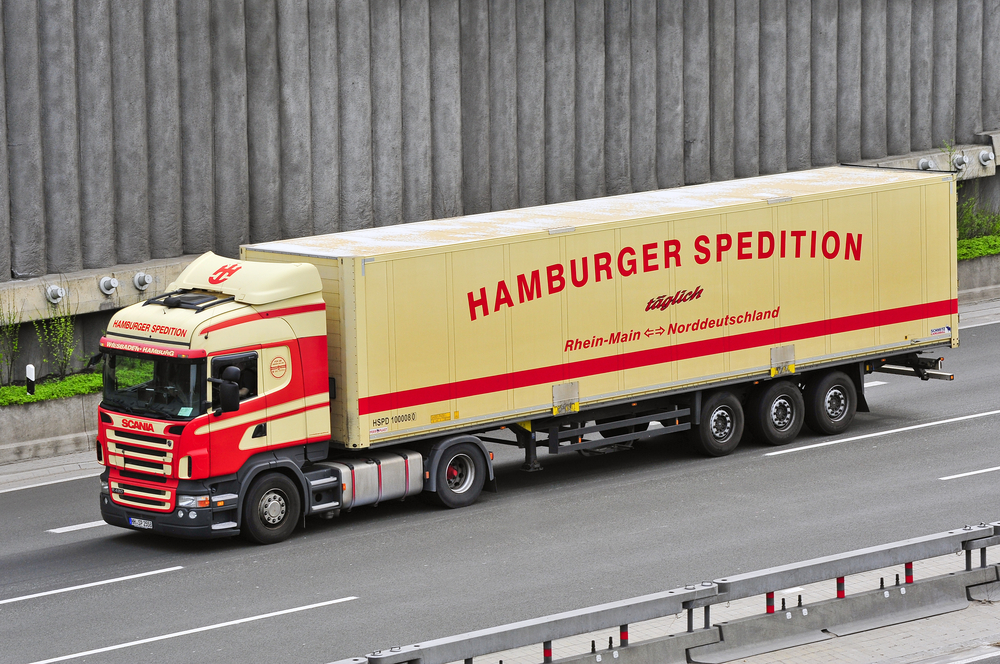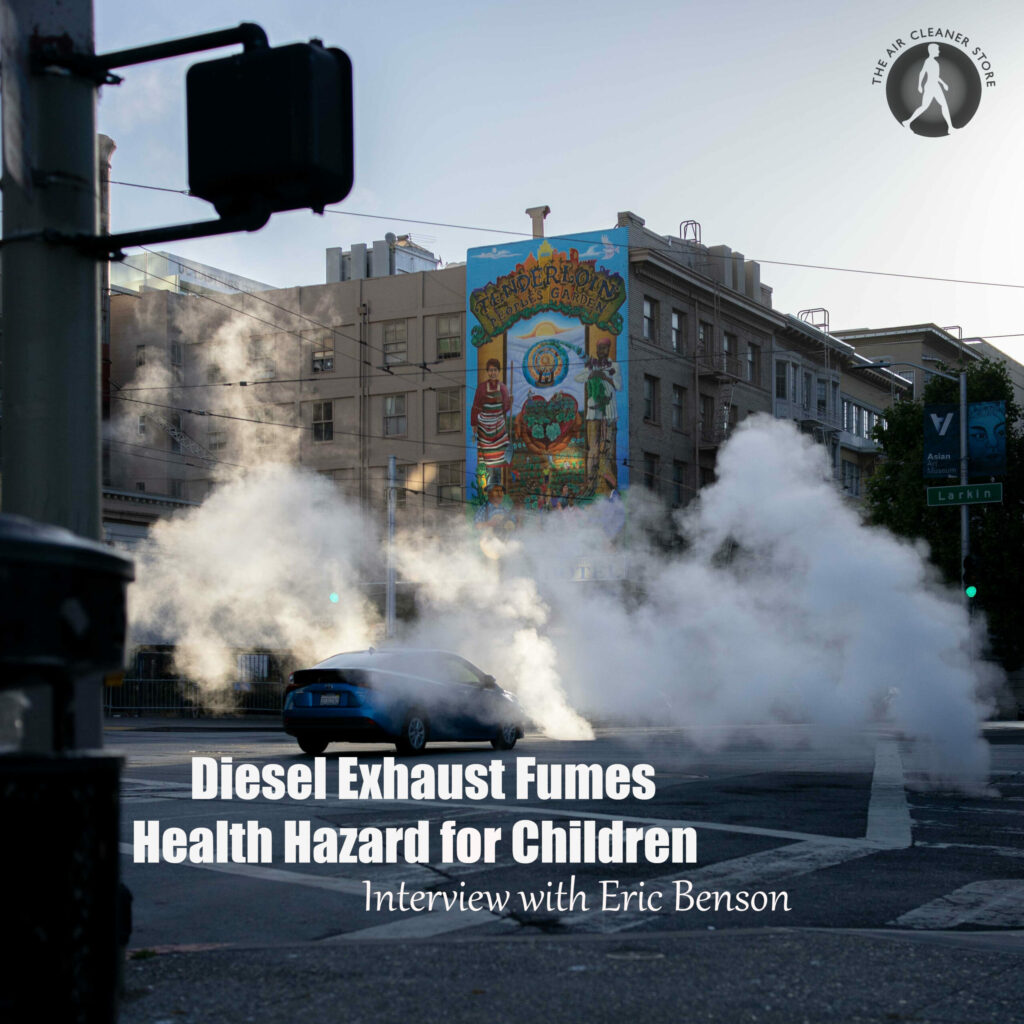
This interview with Eric Benson talks about the harmful effects of diesel exhaust fumes and the health risks they pose to children
David: My guest today is Eric Benson, a lobbyist and a canvass director for the Montclair area for Clean Water Action. Clean Water Action is a grassroots environmental advocacy group that was founded in 1972 to protect our environment, health, economic well being and also our collective quality-of-life. Clean Water works locally to sustain and improve environmental standards but also to promote democratic process in which the voices of citizens determine the policy that affects our communities and our quality of life.
Eric graduated from Rutgers University in 2004 with a bachelor’s degree in geography. He began with Clean Water as a canvasser and became a full-time organizer and field director of the Montclair, New Jersey district. He also serves on the board of the Essex County Environmental Commission and is a resident of Montclair, New Jersey.
Today we’re going to talk about diesel exhaust fumes in our inner cities and the health hazards that they create for children.
David: Eric, describe what kind of truck problems we have in Newark, NJ.

Eric: I work in the Montclair office for Clean Water Action and we do a lot of work in and around Newark, New Jersey. Newark is the states’ largest city and we have a lot of residents who live there and we also have a lot of industrial complexes and companies. Newark has a long history of industrial pollution. One of the largest economic drivers of New Jersey is the Port Authority of Port Newark, where over 270,000 people work and where their is over 36 billion dollars in economic activity for shipping, trucking, warehouses and other industries. All of this economic importance and development comes with truck traffic moving the goods and cargoes into and out of the city. Diesel pollution and the exposure to diesel fumes cause long term health effects. Even though diesel pollution is the classified percentage set by the United States EPA, long term exposure to diesel fumes and the very fine particles it contains can lead to lung cancer and other health issues. The short-term effects of exposure to diesel fumes are respiratory issues, irritation of eyes, nose, throat and headaches. Children in particular are more vulnerable, their bodies are still developing. Their exposure to toxic fumes is going to have lifelong impacts and harm the development of their respiratory system and nervous systems. Also children’s bodies are smaller so if they are exposed to the same amount of pollution as a healthy 140 pound adult male – it’s a higher dose as their bodies are smaller, so that a similar size dose has a more severe impact on a small child.
David: Now you mentioned that the soot off from the diesel has a toxic component and a major cause of the health problems – are there other components as well in the diesel fumes?
Eric: Yes we have made some progress. Sulfur used to be a big pollutant coming out of diesel trucks but since 2007, New Jersey has been using a low sulfur diesel fuels. Diesel is more heavily processed before it can be sold at the pump. The reduction of sulphur emissions is progress, but there are other dangerous pollutants including nitrous oxide and sulfur dioxide that are released in the air every time you burn diesel. Their are many VOC’s and particles in diesel emissions that can lead to health problems.
David: Yes and I also saw in the literature that there’s been some documentation – some studies which have shown the difference between health problems and health risks for children in the inner-city verses in the suburbs. Could you talk a little about that?
Eric: The more exposure you have to diesel exhaust, the more impact it is going to have. Their are thousands of trucks coming into and out of Newark every day. Suburban areas do not get that volume of truck traffic. Other issues include the lack of space for children to recreate or play . In Newark we have performed some truck counts near playgrounds – in some areas their are 250 trucks per hour. These inner city green spaces are limited. As parents we are supposed to send our children to play outside, to encourage them to be active and healthy. When you have that number of trucks driving by the park over that period of time – it takes away from the spaces where children should be recreating. Children living is suburban areas just doesn’t see that level of exposure of toxic pollutants in playgrounds and green spaces.
David: Yes, the statistics for asthma in the suburbs is 1 in 10 children. In the inner-city like Newark it’s more like 1 in 4. That’s a very significant difference. The socioeconomic impact of living in the inner city has a direct health impact. Could you highlight the progress we have made in this area in regards to diesel fuel standards? Also share with us about new regulations for truck idling. Please share with our listeners how these changes are a product of environmental lobbying.
Eric: Sure, there’s a couple of pieces to this where have made progress. One area of improvement is that the fuel is now further refined and burns cleaner. Their has also been significant progress is in truck technology and their emissions . In 2007 there were some federal regulations that reduce overall pollution in particulate matter by 90%. Any trucks from 2007 and later have a very high standard for emission standards. Unfortunately, at this time there are still over 6000 trucks a day that regularly enter and exit the port that have pre-2007 technology. One of the initiatives that we are promoting is for the Port Authority to have a cleaner fleet of trucks.
The Port Authority is now in the process of raising the Bayonne Bridge to allow bigger boats with more cargo into Port Newark. That will lead to more truck traffic in Newark and more truck pollution. The 2007 diesel emissions standards we are pushing for have a zero emission goal, but increasing the truck volume will have a direct impact on the local environment. That is something that we are concerned about at this time.
Another law was passed regarding truck idling, but it is another area where the port can be more efficient. If you ever drive around the port, you can see trucks lined up for a mile at a time waiting for their cargo to unload. Unfortunately I don’t think we see enough enforcement of the anti-idling law. On the other hand, these truck drivers, who are amongst the lowest paid workers in the port, often have to sit and wait all day for their cargo to unload. Potentially, their are further improvements in the efficiency to reduce those big lines. Additionally, electrification of the port would be the next step on our zero emission campaign. While these truckers are waiting for in line, they have to maintain the climate control on hot summer days and the same thing in the winter time when they are cold. Currently the climate control systems in the truck require that the truck engine is running. With electrification, truckers will be able to “plug in” for heating and cooling instead of running their diesel engines. This would be step to reducing emissions as well.
David: That’s a terrific solution and it’s something that I knew nothing about. What would like to say in conclusion? What needs to happen and how can each one of us help and make a difference?
Eric: Right now we’re working on a zero emissions campaign and this is part of a national strategy. The issues and problems that we are facing in Newark are common to all the major ports across the United States. We have a petition that we have just started addressed to US EPA administrator Gina McCarthy urging her to move forward on the Port Zero Emissions initiative. We need to show her that we as citizens want to move forward on the Zero Emissions initiative. We are working to get hundred thousand signatures on our petition to McCarthy and we have a meeting scheduled in February. I would love to share the link with you and you and anyone in your network that you know who would help in our program to move forward for better emissions in our ports.
David: Absolutely!
www.bit.ly/zero-emissions
https://www.facebook.com/CleanWaterActionNJ
Tweets by CleanWaterNJ
Eric Benson
Canvass Director
559 Bloomfield Ave
Montclair, NJ 07042
973-744-3005
ebenson [@] cleanwater.org
Eric: Thank you, I really appreciate your taking the time to gather this information and put it together in a blog format.
David: Looking forward to hopefully more interviews with you on more topics affecting really environmental health and the health of our children. So thank you very much.
Also Read:
David Brooks shares the story of his son’s environmental illness (An interview)
